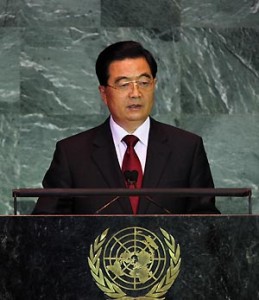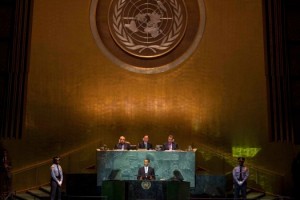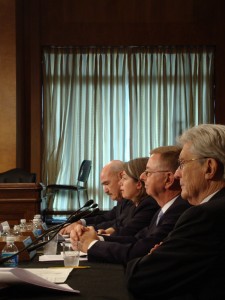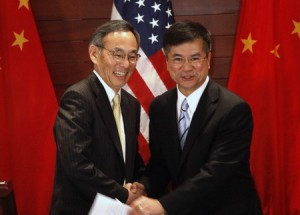Steve Wolfson on the Need for U.S.-China Cooperation to Battle Climate Change
The U.N. Climate Change Conference in Copenhagen is exactly two months away but has China and the U.S. made any headway in coming to terms with their differences on the climate change front? In a new article published in the Tsinghua China Law Review, senior attorney at the U.S. Environmental Protection Agency (EPA) Steve Wolfson offers a positive outlook on negotiations with recommendations on how the U.S. and China can move forward to reach a meaningful climate change agreement.
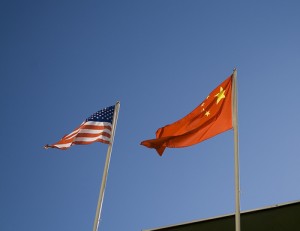 In “Gathering Momentum for U.S.-China Cooperation on Climate Change” Wolfson reviews the issues that have plagued climate change negotiations between the U.S. and China and the progress that has been made:
In “Gathering Momentum for U.S.-China Cooperation on Climate Change” Wolfson reviews the issues that have plagued climate change negotiations between the U.S. and China and the progress that has been made:
- A Developed Country or a Developing Country? – China puts itself squarely in the developing nation category. Developing nations were exempt from greenhouse gas emission targets for the Kyoto Protocol and will likely be again for the Copenhagen agreement. But is China a developing country in the way that Cambodia or Ghana is? Arguably no and given the fact that China surpassed the U.S. in 2007 for greenhouse gas emissions, the U.S. and other developed countries should push China forward in agreeing to some type of targets.
- Historic Responsibilities of the Western World – China rightfully claims that the planet’s current climate change crisis is a result of the centuries of development in the Western world. China’s current development over the past 20 years has not caused the current crisis. But the Western countries argue that, unless it limits its greenhouse gas emissions and works on its energy efficiency, China’s future development is what will make the present crisis into a death sentence for the world. However, as Wolfson points out, there has been some movement by the U.S. When Secretary of State Hillary Clinton visited China in February, she acknowledged the special responsibility of the U.S. due to its role as the largest historic emitter of greenhouse gases. In his speech before the U.N. two weeks ago, President Obama also admitted to the historic differences between the U.S. and China in terms of greenhouse gas emissions.
- China’s Positive Progress on Controlling Carbon Emissions – Wolfson analyzes the various laws that China has passed to curb its greenhouse gas emissions and increase its energy efficiency. He also takes note of China’s various initiatives to restructure its economy to improve its efficiency and reduce its emissions.
While Wolfson’s article offers much hope for U.S.-China progress on the eve of Copenhagen, he concludes on a slightly somber note, remarking on China’s inability to implement many of its national laws on the local level. This is a problem that permeates all of Chinese society: the the Sanlu milk powder scandal last year, the recent and wide-spread lead poisoning of children in villages that boarder factories, the importation of toys laced with lead from China; school buildings that do not withstand an earthquake; these are all examples of a regulatory system that fails on the local level.
China is sincere in its desire to be a leader in clean technology and to clean up its environment. But its problem now is implementing any agreement that comes out of Copenhagen, and this is not because China does not want to; it is because China does not know how.
We at China Law & Policy have recommended in past posts and continue to recommend that U.S. policy makers seize the opportunity that Copenhagen offers to assist China with its legal development in the regulatory field. Copenhagen should not just be about agreeing to targets; an agreement from Copenhagen should also include the U.S.’ commitment to provide resources on implementation and governance, knowledge exchanges between U.S. environmental regulators and Chinese environmental regulators, and an open-mindedness that it is going to take China some time to establish an effective regulatory scheme. By assisting China with its regulatory development, the U.S. will not only make headways in establishing a greater sense of rule of law but could potentially benefit the lives of 1.3 billion people in a very real and tangible way. Wolfson’s article reminds us of this.
Click here to Read Steve Wolfson’s Gathering Momentum for U.S.-China Cooperation on Climate Change.
 On Facebook
On Facebook By Email
By Email 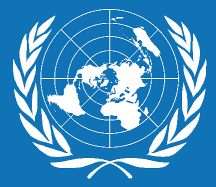 This past week the U.N. General Assembly in New York was filled with wave after wave of speeches and meetings dedicated to limiting global climate change. With the December Copenhagen conference less than three months away, the question remains – has there been any progress?
This past week the U.N. General Assembly in New York was filled with wave after wave of speeches and meetings dedicated to limiting global climate change. With the December Copenhagen conference less than three months away, the question remains – has there been any progress?